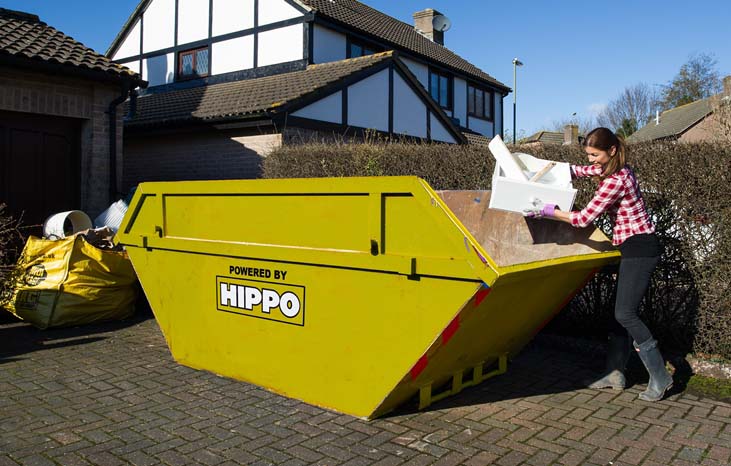
Table of Contents
Hiring a skip is one of the most efficient ways to manage waste during domestic renovations, construction projects, and garden clear-outs. However, many homeowners and contractors often ask, How much to hire a skip? The answer depends on several key factors, from skip size and rental duration to location and waste type.
This detailed guide explores skip hire pricing, factors affecting the cost, and essential considerations to help you make informed, cost-effective decisions.
Key Insights into Skip Hire Costs in the UK
Understanding how skip hire pricing works is crucial before making a booking. Skip hire costs are influenced by a combination of variables, including size, location, duration, and regulatory requirements. By familiarising yourself with these elements, you can avoid unnecessary charges and ensure your project stays within budget.
Primary Factors Affecting the Cost of Hiring a Skip
Several important factors contribute to the total cost of skip hire. Knowing what influences pricing can help you better estimate and manage expenses.
1. Skip Size and Capacity
Skip sizes range from small 2-yard skips to large 16-yard containers. The larger the skip, the higher the hire cost. Choosing an appropriate size based on your waste volume is essential. Overestimating leads to overspending, while underestimating can mean hiring a second skip.
2. Duration of Hire
Most skip hire companies offer standard rental periods of 7 to 14 days. Extending the hire beyond this period may incur additional daily or weekly charges. Planning your project timeline effectively can help you avoid late return fees.
3. Geographic Location
Prices vary significantly across the UK. Hiring a skip in urban areas such as London, Birmingham, or Manchester is typically more expensive than in rural or less populated regions due to higher disposal costs, permits, and demand.
4. Type of Waste Being Disposed
The nature of the waste plays a major role in cost. General household or garden waste is typically cheaper to process than heavier materials like bricks, concrete, or plasterboard. Hazardous waste, such as asbestos or electrical appliances, often incurs additional handling and disposal charges.
5. Permit Requirements for Public Placement
If you need to place your skip on public land (e.g., a roadside), a skip permit from your local authority is required. These permits are subject to council approval and add to your total cost. Fees and permit durations vary by location and can range between £20 and £80.
UK Skip Hire Price Guide by Size
Skip hire pricing depends largely on the size of the skip you require. Below is an average cost breakdown for commonly used skip sizes in the UK.
Mini Skips (2–3 Yards)
- Best for: Small domestic projects, garden clean-ups
- Capacity: 20–35 bin bags
- Average Cost: £90–£130
Midi Skips (4–5 Yards)
- Best for: Medium-scale home renovations, small bathroom or kitchen refits
- Capacity: 40–55 bin bags
- Average Cost: £120–£170
Builder’s Skips (6–8 Yards)
- Best for: General building work, large home improvements
- Capacity: 65–80 bin bags
- Average Cost: £180–£250
Maxi Skips (10–16 Yards)
- Best for: Commercial projects, bulky waste, large clearances
- Capacity: 100–160 bin bags
- Average Cost: £250–£450
Note: Heavier waste types like soil and rubble may not be accepted in large skips due to weight limits.
Cost-Saving Tips for Hiring a Skip
Skip hire can be expensive if not properly planned. Here are a few proven strategies to help you keep costs down:
- Select the right size: Avoid overpaying by choosing the skip size that best matches your waste volume.
- Compare multiple providers: Prices vary between companies; requesting multiple quotes can secure you a better deal.
- Avoid restricted items: Placing prohibited waste like tyres, batteries, or fridges in your skip can result in extra charges.
- Share with neighbours: If you and your neighbours are both undertaking clear-outs, consider sharing the skip and splitting the cost.
- Hire during off-peak times: Some providers offer discounts during quieter periods or mid-week bookings.
Legal Requirements and Permits for Skip Hire
Before hiring a skip, it’s essential to be aware of legal obligations, particularly if the skip will be placed on public property.
Skip Permits and Council Fees
You’ll need a permit from your local council if the skip is placed on a public road or pavement. Permit fees range from £20 to £80, depending on the authority and location. Your skip hire company can usually arrange the permit on your behalf.
Parking Suspensions and Safety Regulations
In busy urban areas, parking bay suspensions may also be necessary. Additionally, councils often require the skip to be equipped with reflective markings, safety cones, and night-time lights to ensure visibility and public safety.
Final Thoughts: How Much to Hire a Skip
So, how much to hire a skip? The answer depends on several factors—including size, duration, waste type, and location. On average, UK skip hire costs range from £90 for a mini skip to £450 or more for a large commercial unit. Understanding what affects pricing enables you to choose the most suitable and cost-effective solution.
By selecting the right skip size, comparing quotes, and adhering to regulations, you can save money and ensure a smooth waste disposal process. Whether you’re decluttering your home or managing a large building project, proper planning and informed decision-making are key to successful skip hire.




